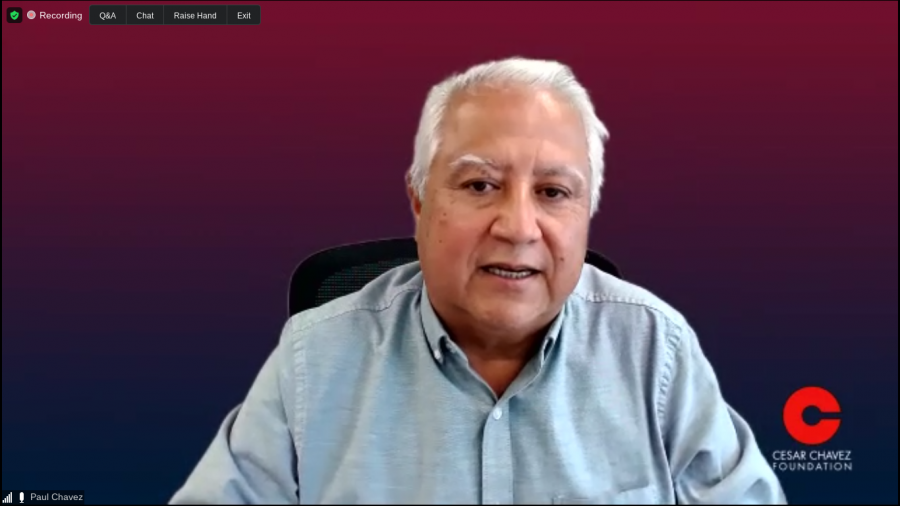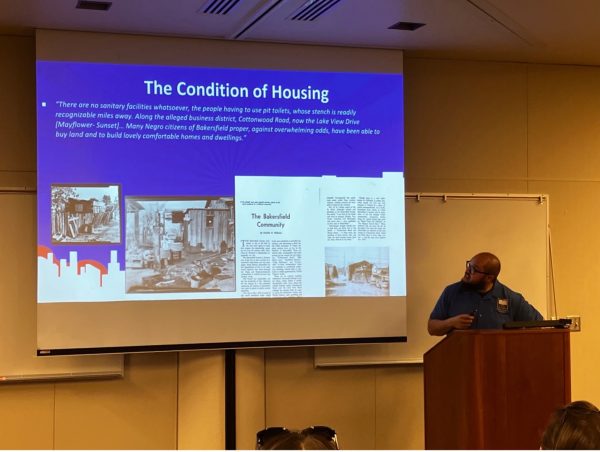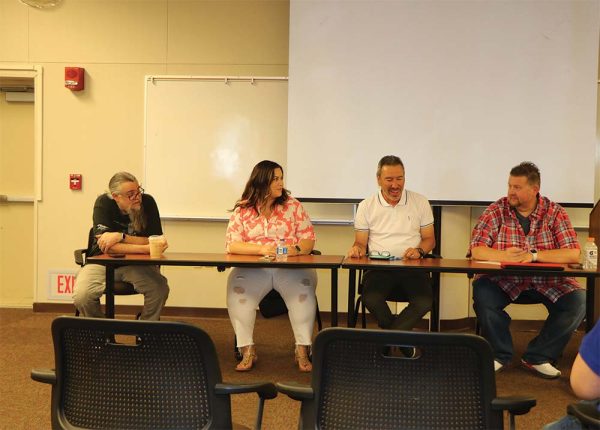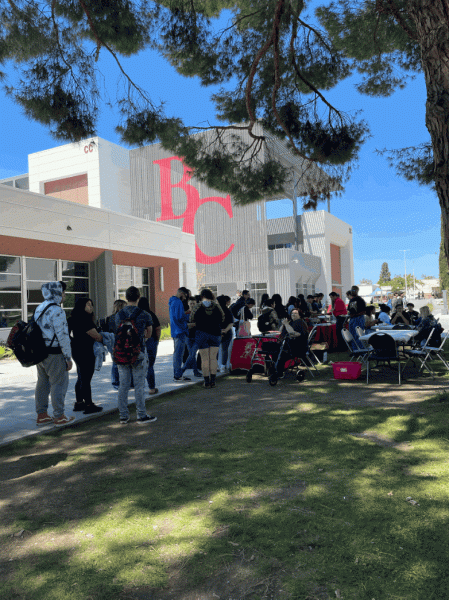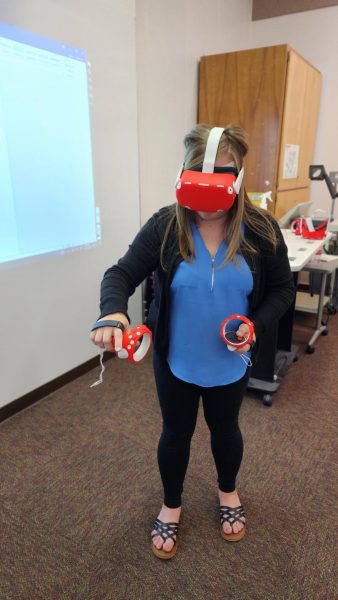The BC Social Justice Institute and United Farm workers of America host a webinar, Celebrating the Legacy of Cesar Chavez
March 29, 2021
The Bakersfield College Social Justice Institute and the United Farm Workers of America (UFW) teamed together to put on Celebrating the Legacy of Cesar Chavez, the Farmworker Movement, and the Ongoing Work of the UFW and Cesar Chavez Foundation, a Zoom panel, on Tuesday, March 23 as part of the second day of the third annual Jess Nieto Memorial Conference.
According to the Bakersfield College Social Justice Institute’s webpage, the Jess Nieto Memorial Conference is a yearly conference held in the memory of Chicano Studies Professor Jesus “Jess” Gilberto Nieto that focuses on “Chicano/a/x, Latino/a/x, and regional cultures and histories, Ethnic Studies, community service and activism, pedagogical practices, and student thought and identity.” The event ran from Monday, March 22 until Friday, March 26.
The Zoom panel Celebrating the Legacy of Cesar Chavez, the Farmworker Movement, and the Ongoing Work of the UFW and Cesar Chavez Foundation, focused on the historic Delano Grape Strike, Cesar Chavez’s work with the UFW, Chavez’s memory, and the legacy that the UFW carries today.
The event was hosted and moderated by Eric Cardona and Bakersfield College History Professor, Olivia Garcia. Panelists featured were son of Cesar Chavez and President of the Cesar Chavez Foundation Paul Chavez, current President of the UFW Teresa Romero, former President of the UFW Arturo Rodriguez, and Captain of the Delano Grape March- a 300-mile march from Delano to Sacramento- Roberto “El Capitan” Bustos.
Three of the four panelists had known Cesar Chavez personally before his death in 1993, Rodriguez and Bustos working alongside him and Paul Chavez being his son.
“We are a labor organization, but when Cesar founded us, we always had this idea that we would be more than a union,” said Rodriguez about the UFW. According to the UFW’s official website, the UFW was founded in 1962 by Cesar Chavez, Dolores Huerta, Gilbert Padilla, and others that are unnamed. While the main focus of the UFW is to unionize farmworkers, other goals involve education, health benefits, and anti-discrimination measures. “That’s something that Cesar thought through the beginning. That it was more than a union.”
Agreeing with Rodriguez was Cesar Chavez’s son. “There were strikes and boycotts,” said Paul Chavez, “but it was never about lettuce and grapes. It was about people.”
Along with Cesar Chavez’s work with the UFW came the topic of the UFW’s work since his passing in 1993. “Cesar told them many times, and I was there when he told them many times, ‘when I’m gone, don’t let this thing die’,” said Bustos.
Since Cesar Chavez’s death, the UFW has gained 50,000 active members, helped reform laws regarding farmworkers, and made union contracts with multiple agricultural industry businesses according to its website.
“I think my dad understood that the work would not be done in his lifetime,” said Paul Chavez. “He had this idea that you lose when you stop fighting.


